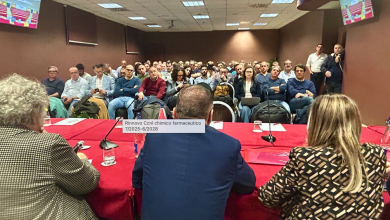
But when it comes to medicines, users prefer the human relationship
 Gynecologist's advice on teenage pregnancy. Those of the psychologist to counteract anxiety. And also some suggestions for problems under the sheets. There are thousands of websites on the internet offering pharmaceutical/health information and assistance. However, the questions arise spontaneously: are they reliable? Is the information verifiable? And the controls? Various European states regulate the online drug sales. The pharmaceutical companies try to adapt to the digital age by developing medical information sites where various information can be consulted for the medicines produced. Medical information is available 24 hours a day. Could the digital approach of scientific knowledge be better than the traditional figure of the medical informant?
Gynecologist's advice on teenage pregnancy. Those of the psychologist to counteract anxiety. And also some suggestions for problems under the sheets. There are thousands of websites on the internet offering pharmaceutical/health information and assistance. However, the questions arise spontaneously: are they reliable? Is the information verifiable? And the controls? Various European states regulate the online drug sales. The pharmaceutical companies try to adapt to the digital age by developing medical information sites where various information can be consulted for the medicines produced. Medical information is available 24 hours a day. Could the digital approach of scientific knowledge be better than the traditional figure of the medical informant?
The situation in Italy
In Italy, with the legislative decree 219/2006 no medicinal product can be placed on the market in Italy without having obtained authorization from the Italian Medicines Agency or from another Community authority. Therefore, if there is careful and active legislation regarding medicines, how do we approach scientific information?
The UK case
In Great Britain there is a special register for online sales with an electronic medical prescription. But how far is this service useful? Numerous sites offer pharmacological solutionseven on serious diseases. And so the proliferation of "do-it-yourself medicine", together with the possibility of buying medicines online, impose a serious and in-depth monitoring and control activity.
At the beginning of the last decade, in England, the first pharmaceutical companies developed Health Care Professional "self-service" platforms, defined as “medical information websites”. The initial idea was to provide a fast and clear multi-channel path for accessing information. Providing medical-scientific information 24 hours a day, 7 days a week, with a simple click of the mouse, would have allowed many health professionals to speed up their activity by avoiding visits to thepharmaceutical representative.
The portals allowed "the customer", through the search page, to consult certain aspects of the drug. Users were required to register and confirm their role in the healthcare sector before accessing the site, in order to avoid inappropriate access to product content and features.
 Initially the sites worked effectively and really in providing assistance, but over time the access statistics showed that there were about 30 searches per month with only one download.
Initially the sites worked effectively and really in providing assistance, but over time the access statistics showed that there were about 30 searches per month with only one download.
The reasons? Probably the new technologies did not help the website from which it could only be accessed through the desktop and not, for example, through a mobile platform such as a smartphone or i-pad. Furthermore, very detailed questions corresponded to a high percentage of "failed searches".
The needs are complex and often require very specific answers. "Personalised" explanations are required and a "standard document" is not enough. Much of the work ofmedical informant consisting of managing the expectations of healthcare professionals and providing useful information for a specific case, cannot be replaced by "standardized and automatic responders". A document with lots of data but no explanation is of little help to everyone. It is almost obvious that it is easier for an operator in the sector or a potential customer to pick up the phone or send an e-mail to the pharmaceutical manufacturer of that given drug to get adequate answers.
Medical information sites seem to find little appeal and users prefer a physical approach over a digital one. But more up-to-date technology (such as a medical information website with data from various companies) could be the next frontier.
Ed.: We remind you that scientific information on prescription drugs can only be provided to health professionals authorized to prescribe or dispense them (art. 119, Legislative Decree 219/06) according to the rules established by law, the information to pharmacists of medicines that can be sold on presentation of a medical prescription is limited to the information contained in the summary of the characteristics of the medicine. The limitation does not apply to hospital pharmacists (art. 121).
Information on medicinal products can be provided to the doctor and pharmacist by scientific representatives (art. 122).
Any other type of drug information is outlawed!
Related news: Price differences also of 134% when buying drugs online
Sale of drugs online - Here are the names of the authorized PHARMACIES. There are five in all of ITALY (Feb. 2016)
Online drugs (how to do)
Online sale of medicines: what happens in Italy
Common European logo for online sales
Online sale of medicines without prescription, clarifications from the Ministry
Registration in the list of pharmacies and shops authorized to sell medicines online





